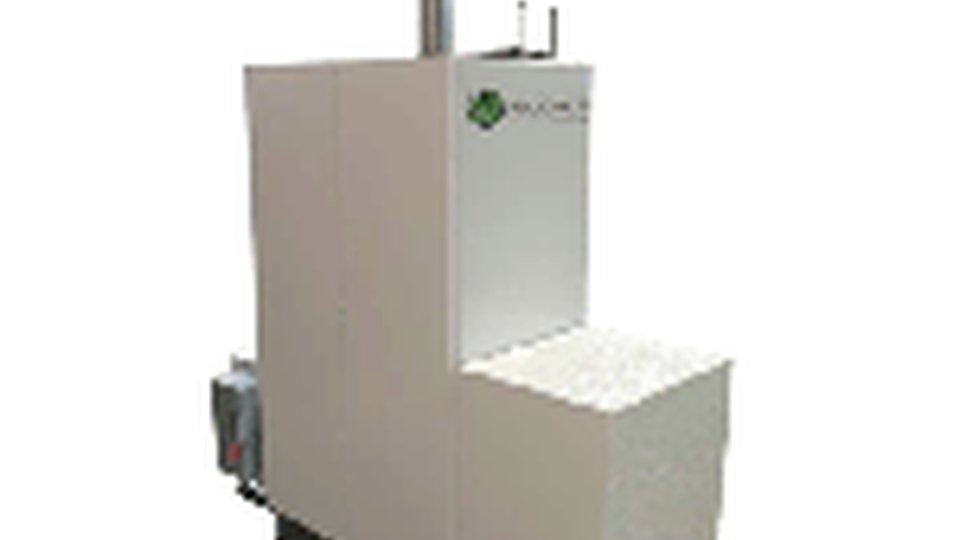Article
Vegawatt system provides alternative energy for QSRs
The biomass system supplements a restaurant's energy use by using waste vegetable oil as fuel.

January 10, 2010
Sustainability and green building efforts are still top of mind for quick-service restaurant operators even in the current tight economic environment. Some operators are even turning to alternative energy solutions, including solar panels, wind turbines or renewable energy systems.
For operators interested in renewable energy, or biomass, systems, the Vegawatt Clean Energy System offers a unit that provides supplement energy by burning a restaurant's used cooking oil. Vegawatt launched the system last year with the goal of helping operators save on energy bills in the Northeast, where energy costs are typically higher than elsewhere in the nation.
Operators who install a biomass system can find their return-on-investment on a number of fronts as their waste oil suddenly becomes fuel. First, there's the savings on energy bills — typically 5 to 20 percent depending on the region. For example, operators in Massachusetts burning 80 gallons of used oil in the Vegawatt system typically save $560 a month in electricity usage – and reduce their energy demand charge.
Operators also save by no longer having to pay someone to haul away the store's used oil.
Benton Prentice, vice president of sales for Vegawatt, said that even for QSR operators who give away or sell their used oil, the ROI is still clear. In some markets, operators may be earning 5 to 15 cents a gallon for that oil, but the Vegawatt can save as much as $2.50 a gallon in energy costs.
Operators who pay haulers to take away their used vegetable oil also saving money on those costs, Prentice said. And they eliminate the need to transfer the oil to waste oil dumpsters. Instead, they pour the used oil directly into the Vegawatt system.
Multiple filtering systems enable operators to add the used oil directly to the system without any prior filtering.
"With Vegawatt, a restaurant's used oil will produce a much greater financial return than any of those scenarios," Prentice said.
Prentice also pointed out the more esoteric benefit of installing a biomass system — the opportunity to draw customers looking for sustainable restaurants.
"Not only is it a great financial return for the restaurant, but the other real gain here — in addition to eliminating paying someone to take it away and then getting a strong gain because you're saving on electricity or natural gas — you can begin to green your brand," he said.
With a biomass energy system, operators can reduce their carbon footprint and create clean, alternative power. Such systems also can help operators meet the U.S. Green Building Council's LEED certification standards. The Vegawatt system also is endorsed by the Green Restaurant Association.
Consumers are more informed about sustainability issues and looking for brands that follow those practices, even in today's economy, said Michelle Barry, senior vice president of the Hartman Group. That assurance that the QSR is caring for the environment translates into improved branding for the restaurant.
"These days sustainability is actually starting to mean something (to consumers)," she said. "A lot of restaurant operators have found that sustainability also equals quality, and that has a nice halo effect for the overall preparation and even the overall brand.
Supplemental energy benefits
Operators who install alternative energy systems like the Vegawatt solution are eligible for federal and sometimes state tax incentives. The federal Advanced Energy Manufacturing Tax Credit provides a 30 percent credit for investments in new, expanded, or re-equipped advanced energy manufacturing projects. State incentives vary, with some, like New Jersey, matching the federal incentive.
Some biomass systems can create or come close to creating all the energy a building needs. However, the Vegawatt system is designed to provide only the amount of energy that a QSR's used oil production can support.
The Vegawatt comes in 4, 5, 6 and10 kilowatt systems, allowing restaurants that have more deep fryers to use larger systems. The company also is developing a larger system for a casino, which uses many more gallons of oil and has greater power needs than a single restaurant.
"The idea was to create a generator to use up all the oil that a typical rest has and provide as much power back as possible," Prentice said.
Read also, 5 ways QSRs can reduce energy costs.
 ChatGPT
ChatGPT Grok
Grok Perplexity
Perplexity Claude
Claude








